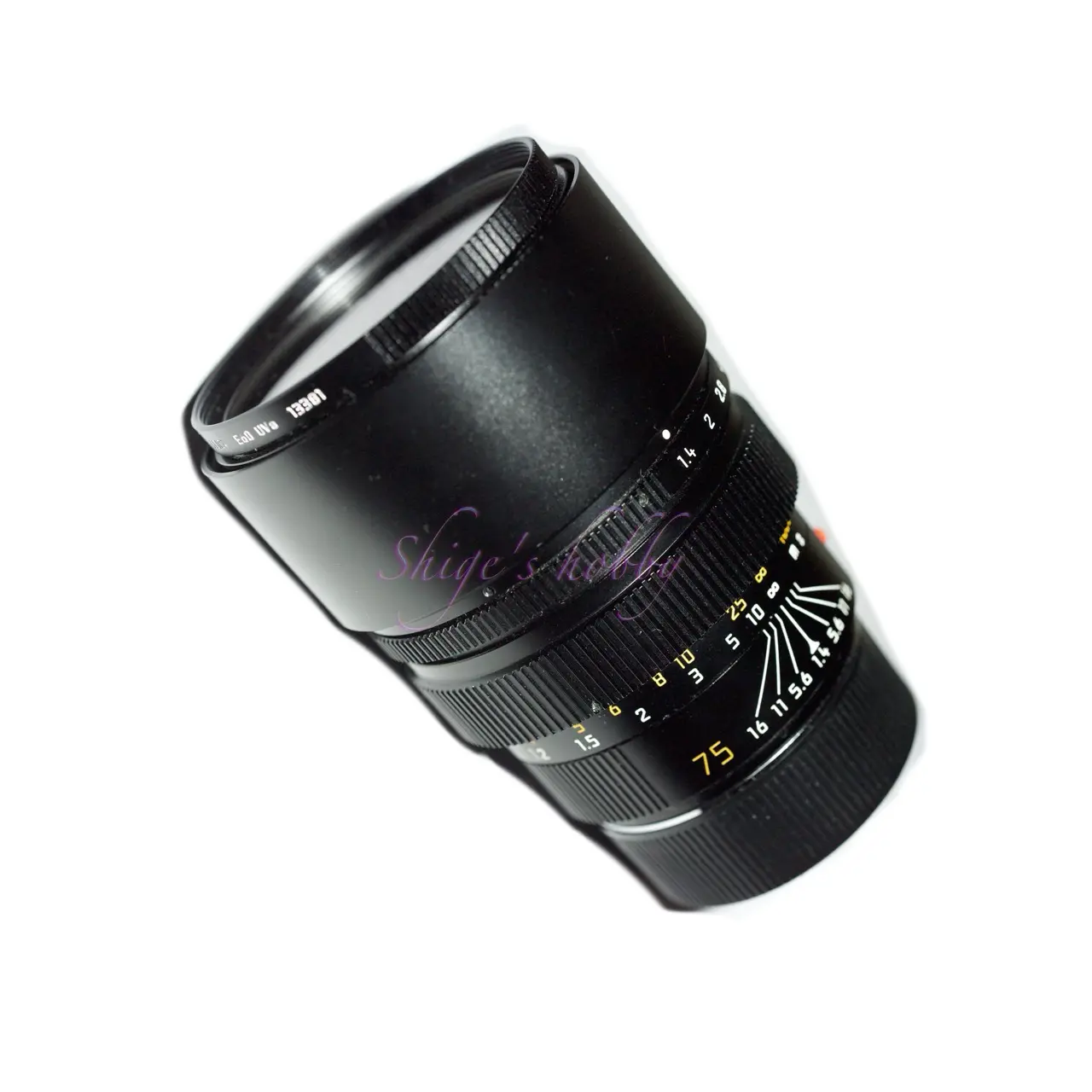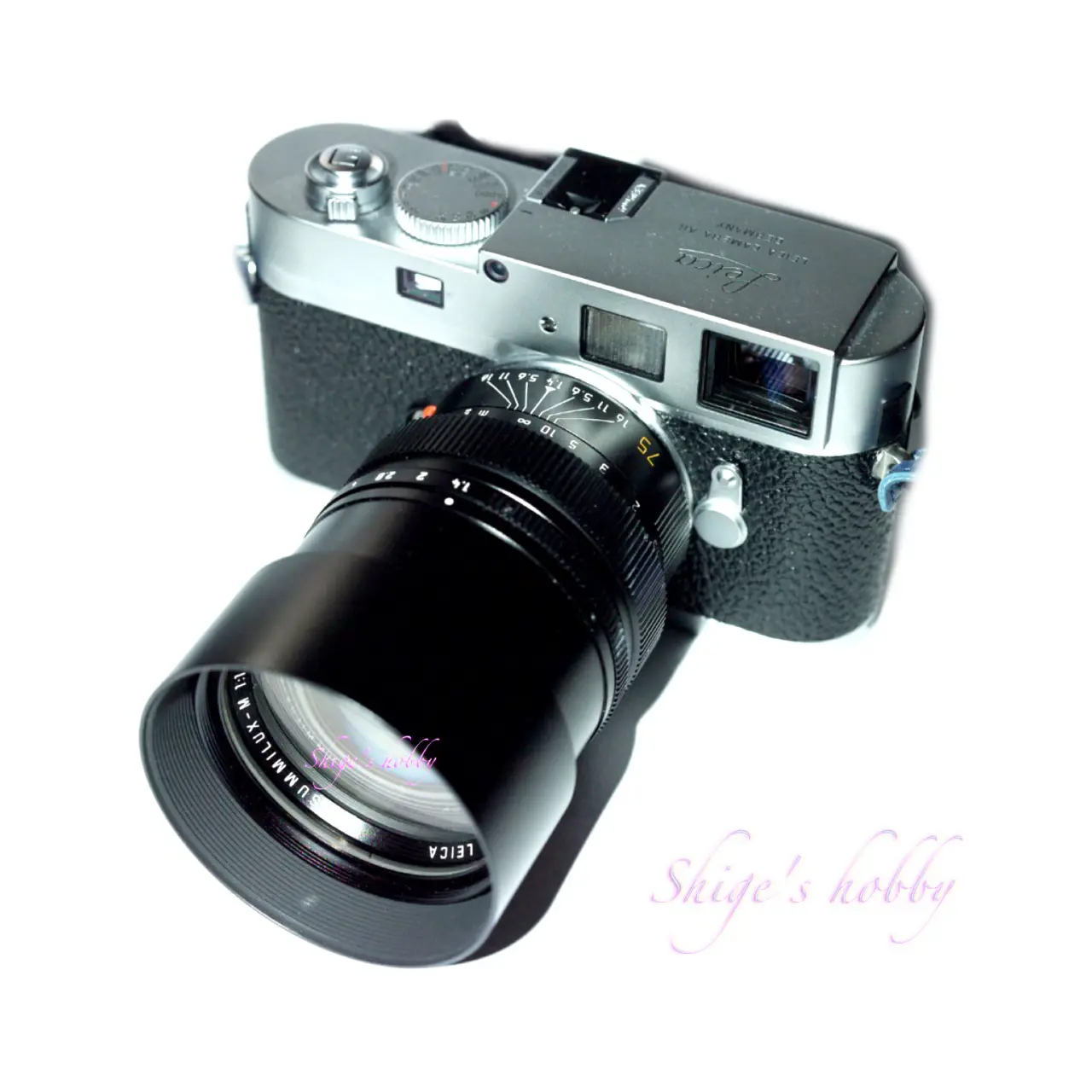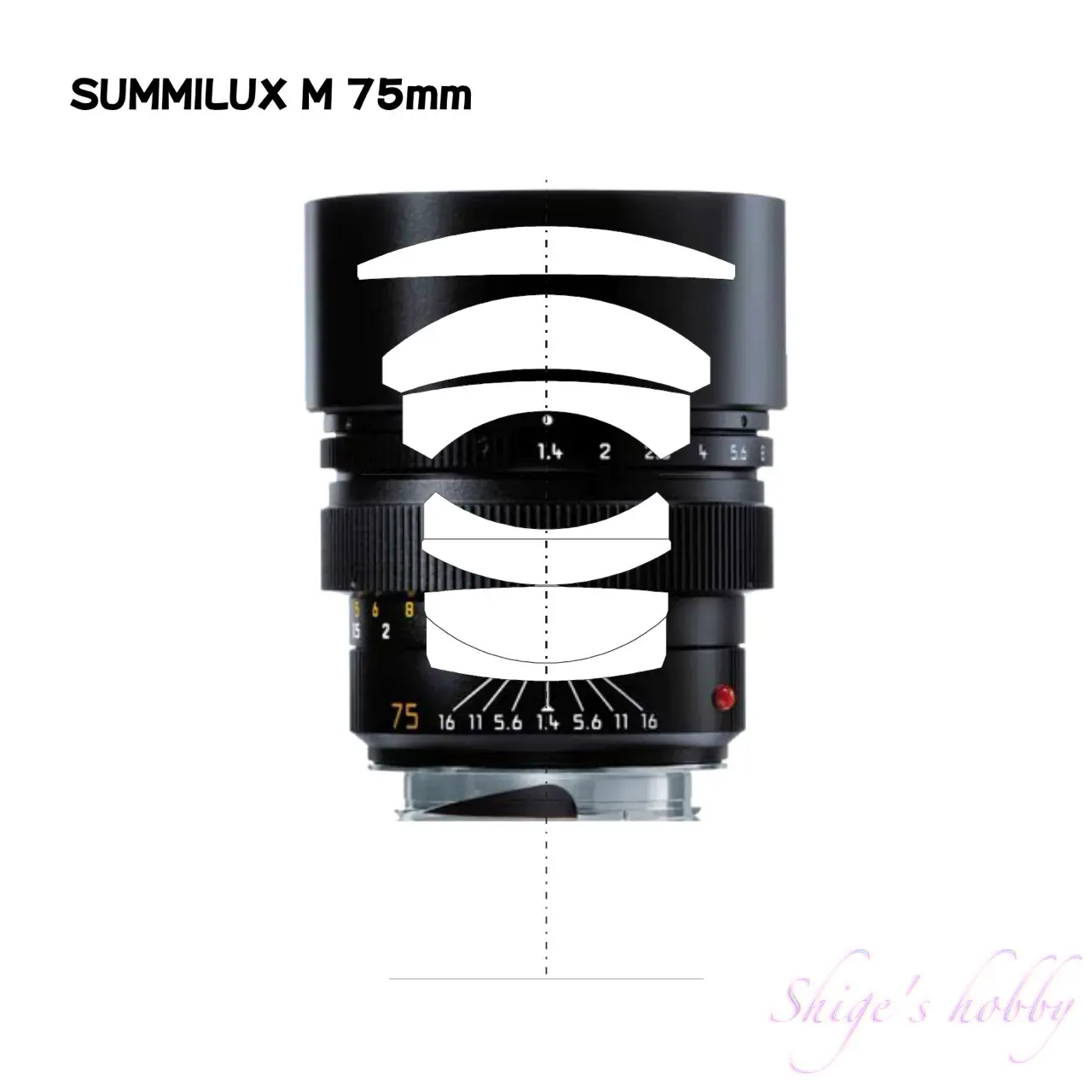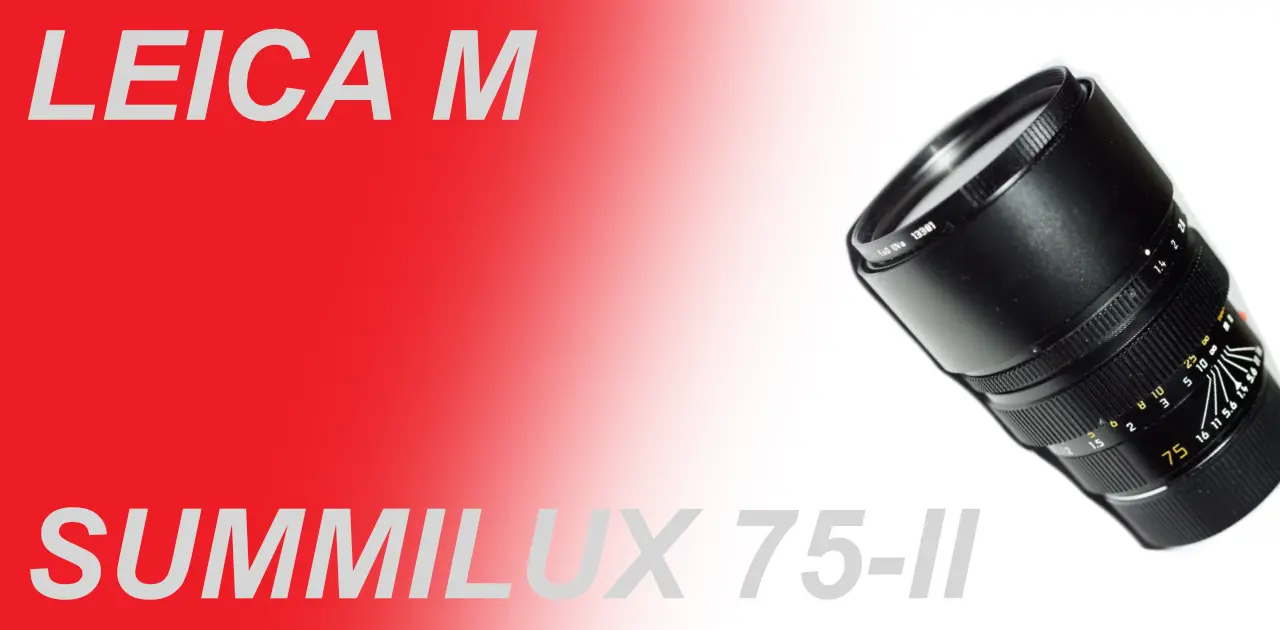Last updated on 2025-05-20
Review and photo examples using the Summilux 75mm F1.4 with the LEICA M9-P
Table of contents
Gallery
- Photo examples were taken with LEICA M9
Review


1.Overview
The Leica Summilux 75mm is a bright medium telephoto lens released in 1980.
By 2007, about 15,000 units had been manufactured.
The main specifications are as follows, and the details are listed in the table.
- Aperture value: 1.4
- Lens construction: 7 elements in 5 groups
- Aperture blades: 9
- Minimum focusing distance: 0.75m
- Leica M rangefinder camera rangefinder coupling: 0.75m
- Hood: Late model: Built-in, Early model: Hook-fastened snap-in
- Lens color variations: Black only
The early model is unknown, but the later model has a standard screw-fastened mount, so a 6-bit code for lens recognition that can be used with digital M-type Leicas can be added.
2.Usage
When I owned this lens, I was using a LEICA M9, and it was difficult to focus at the maximum aperture of F1.4 using the M9’s viewfinder, and when attached to the M9, which has a lighter body, the weight of the tip of the lens felt heavy, so the weight balance during shooting was not good.
The lens is lighter than the SUMMILUX R 80, but it is heavy for a lens for a rangefinder camera.
The focus position, which is a problem when shooting at the maximum aperture of F1.4, was a problem when shooting at the maximum aperture of F1.4, but since negative film at the time was not that expensive, if you were unsure about the focus position, you could deal with the focus problem by taking a shot with a shifted focus position using focus bracketing. However, with the price of film in 2025, this will be difficult to do.
With a digital camera, the cost of focus bracketing is almost zero, so the threshold for using focus bracketing when you are unsure about the focus position is low. And with a mirrorless camera, you can enlarge the thin focus position with the electronic viewfinder (hereinafter referred to as EVF) to solve the focus position problem when shooting, making it even more convenient to use.
The result of the shot is a center of focus that is adjusted and then blurred into the background, and just like the R-mount SUMMILUX R 80, you can enjoy the pleasure of using a large-aperture medium telephoto lens. However, with a rangefinder camera, it is unfortunate that you cannot see the blur while shooting, as you can with a SLR camera.
After I got the SUMMILUX R 80mm, which seems to be a sibling of this lens, I realized that a bright medium telephoto lens is more suitable for use with a SLR camera than a rangefinder camera, so the usage rate of the Summilux-M 75 decreased even further and it began to gather dust in my humidity-proof cabinet for a long time. It was a lens that I never used even if I had it on hand, so it disappeared when I bought another lens.
3.Summary
To sum up the LEICA SUMMILUX M 75mm, it’s a lens that makes it hard to see why it’s worth using with a rangefinder camera.
The reason is that it’s difficult to focus with the double image of a rangefinder camera at full aperture. You will inevitably end up with some photos where the focus isn’t on the intended spot. If you want to be sure to get a photo with the intended focus position, you’ll need to adjust the focus with a high-resolution electronic viewfinder, so you can see the true value of the lens better by using the latest mirrorless camera.
NOCTILUX 75mm F1.25
The NOCTILUX F1.25, released in 2018, is one of the lenses that have increased the diameter of M-mount medium telephoto lenses, and together with the SUMMILUX 90mm F1.5, it reigns supreme as a lens that exceeds the 2 million yen mark.
The lens construction is also a state-of-the-art design, with two aspherical lenses on one side, and the lens is packed as much as possible into a short lens barrel to pursue brightness and correction. It weighs over 1kg, making it twice as heavy as the SUMMILUX 75mm.
The lens is likely intended for use with the LEICA SL series, a mirrorless camera equipped with an EVF, rather than a rangefinder camera body.
- The lens construction diagrams are quoted from each company’s materials, and the sizes have been adjusted by us, so they are not exact.


Mount Adapter
Since it is a Leica M mount, it can be attached to an L mount body using the original M lens adapter for L, black 18771 or silver 18765, or mount adapters for mirrorless cameras are available from various manufacturers, so like other M mount lenses, it is highly versatile in terms of the bodies that can be used.
Based on the results of using the SUMMILUX R 80mm with the HASSELBLAD X2D, the SUMMILUX 75mm, which has almost the same lens configuration, should also have a similar image circle, so there is a high possibility that it can also be used with digital medium format cameras.
Specification and Competitor
| Item | SUMMILUX M | NOCTILUX M | SUMMILUX R |
| focal length(mm) | 75 | 75 | 80 |
| Maximum aperture | 1.4 | 1.25 | 1.4 |
| Minimum aperture | 16 | 16 | 16 |
| Lens configuration | 5groups in 7elements | 6groups in 9elements | 5groups in 7elements |
| Minimum distance(m) | 0.75 | 0.85 | 0.8 |
| Lens length(mm) | 80 | 91 | 69 |
| Lens max diameter(mm) | 69 | 74 | 75 |
| Filter diameter(mm) | 60 | 67 | 67 |
| Weight(g) | 560 | 1055 | 700 |
| Production number | 14,752 | – | 12,250 |
| Release date | 1980 | 2018.3 | 1980 |
Reference links
Update history
- 2025.4.6
- 2024.9.16
- 2024.2.11:Update
- 2022.5.8:First draft
Affiliate links
- Please see the disclaimer regarding advertising here.
- Italicized links in the text are advertisement links that take you to other sites.
- Amazon Affiliate Link Leica Lens
- Amazon Affiliate Link Leica Books
- Amazon Affiliate Link / Classic Camera Specialty

Amazon Prime Sale



Be First to Comment